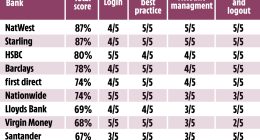MILLIONS of women could benefit if plans for a bill offering compensation are implemented.
The bill, which has been described as a “lifeline” by some, would see £10,000 paid out to eligible pensioners.
Those affected are referred to as WASPI (Women Against State Pension Age Inequality).
These are women who saw their pension age go up from 60 to 65.
Up until 2010, women could claim their state pension from their 60th birthday and men from 65.
But, from 2010 to 2018, the pension age for women gradually increased from 60 to 68, bringing it in line with men’s state pension age.
READ MORE IN MONEY
The women affected by this say the changes were implemented with little notice, leaving them without enough funds.
Earlier this month an MP put forward a bill calling for a compensation scheme with payouts of at least £10,000 to help out those who were impacted.
But who exactly can get the cash? And how did the issue arise? We reveal all.
Who are WASPI women?
WASPI women refers to an estimated 3.8million women born in the 1950s who have been badly hit by a change in state pension age from 60 to 65.
Most read in Money
The acronym stands for Women Against State Pension Inequality.
The women represented were born between April 6, 1950, and April 5, 1960.
What is the WASPI campaign?
The WASPI campaign was set up in 2015 in a bid to help those affected by the change in state pension age.
Campaigners say they agree with the equal retirement age between men and women and are not calling for a return to the former retirement age.
But they say they do not accept the unfair way the changes to the state pension age were implemented with “inadequate” or “no notice”.
Many women had made life plans based on when they thought they were going to be able to retire.
When this was then pushed back, it left them in financial hardship as they waited extra years to receive their pension.
Millions of women suddenly faced unemployment, zero-hours contracts and a loss of independence, according to the group.
Some of the worst affected were the 300,000 women born between December 1953 and October 1954, who were made to wait an extra 18 months before they could retire.
What are the different types of pension?
WE round-up the main types of pension and how they differ:
- Personal pension or self-invested personal pension (Sipp) – This is probably the most flexible type of pension as you can choose your own provider and how much you invest.
- Workplace pension – The Government has made it so it’s compulsory for employers to automatically enrol you in your workplace pension, unless you choose to opt out.
These so-called defined contribution (DC) pensions are usually chosen by your employer and you won’t be able to change it. Minimum contributions rose to 8% in April 2019, with employees now paying in 5% (1% in tax relief) and employers contributing 3%. - Final salary pension – This is a also a workplace pension but here, what you get in retirement is decided based on your salary, and you’ll be paid a set amount each year on retiring. It’s often referred to as a gold-plated pension or a defined benefit (DB) pension. But they’re not typically offered by employers anymore.
- New state pension – This is what the state pays to those who reach state pension age after April 6 2016. The maximum payout is £179.60 a week and you’ll need 35 years of national insurance contributions to get this. You also need at least ten years’ worth of national insurance contributions to qualify.
- Basic state pension – If you reached the state pension age on or before April 2016, you’ll get the basic state pension. The full amount is £137.65 per week and you’ll need 30 years of national insurance contributions to get this. If you have the basic state pension you may also get a top-up from what’s known as the additional or second state pension. Those who have built up national insurance contributions under both the basic and new state pensions will get a combination of both schemes.
What compensation is proposed and how likely is it to be paid out?
Over the years many MPs have supported the WASPI campaign, but ministers have repeatedly ruled out any kind of concessions to those affected.
This included compensation to bridge the gap between the change in their state pension age or a one-off payment.
But now an SNP MP has put forward a proposal to force the government into establishing plans for a compensation scheme.
Alan Brown said the government should give payouts of £10,000 or more.
However, the Bill is not a sure thing and could not be passed through parliament.
This could be due to it being tricky to work out who actually is eligible for the cash.
Some critics have said that a blanket payment scheme wouldn’t be able to distinguish between people who knew their state pension age was going up and others who hadn’t been properly contacted by the DWP and had suffered as a result.
It would also be pretty expensive, running into billions of pounds.
Others don’t believe the £10,000 figure would be adequate for some who believe they lost out on much more.
READ MORE SUN STORIES
The State Pension Age (Compensation) Bill’s second reading stage was listed for Friday, April 19, but it will be unlikely to progress through Parliament without the Government’s support.
It means the cash payouts are far from guaranteed, but we will keep you posted with any changes.
Do you have a money problem that needs sorting? Get in touch by emailing [email protected].
Plus, you can join our Sun Money Chats and Tips Facebook group to share your tips and stories.










